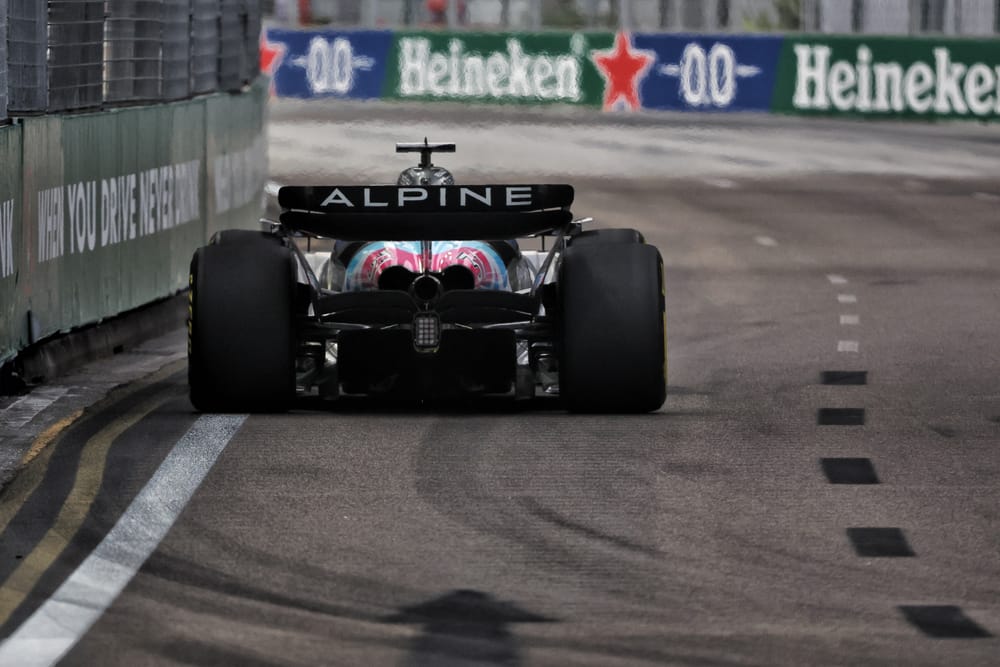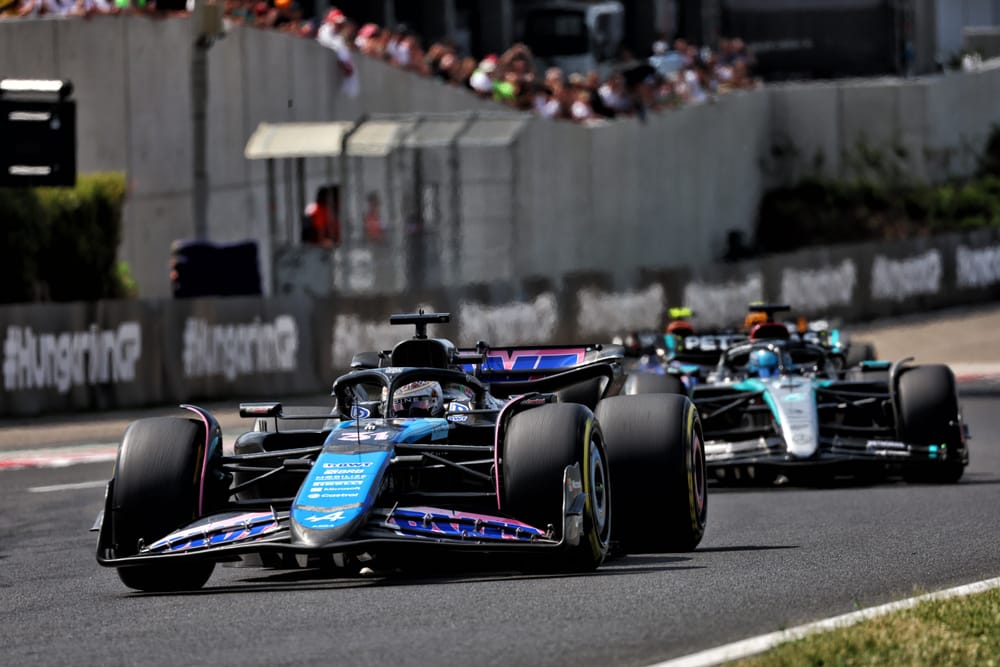

The French Ferrari failed. Now the team that had that dream is looking for shortcuts to finally succeed in Formula 1.
In the wake of the long-expected confirmation that Renault will axe its works F1 programme after 2025, Renault CEO Luca de Meo admitted in an interview with L’Equipe last week that his grand ambition for the Alpine-branded team needs a big revision.
De Meo wanted to turn the Renault works team into a "French Ferrari" - exactly what that means is unclear, but it was presumably a hope that Alpine would transcend its niche status, become a grand symbol for French motorsport and succeed as a great national hope.
Lamenting how its all-French driver-line-up of Esteban Ocon and Pierre Gasly crashed into each other, and how French companies have failed to support the team, De Meo says he has had to front up to the fact Alpine’s reality is uncompetitive and unsustainable.
A works engine is not a priority in the modern era. Owning a team is. Owning a successful team especially. And owning a commercially successful team might be most important of all judging by what De Meo’s said about the shareholders and the fact “we must make money”.
“I run a listed company and I have to rethink the F1 project, to finally win,” said De Meo.
“So I'm looking for shortcuts to achieve this.
“Now, we've become invisible. Two more years like this and the project would completely deflate.
“We've been on a downward slope for three seasons. We had to shake all that up. With a financial logic in parallel.”
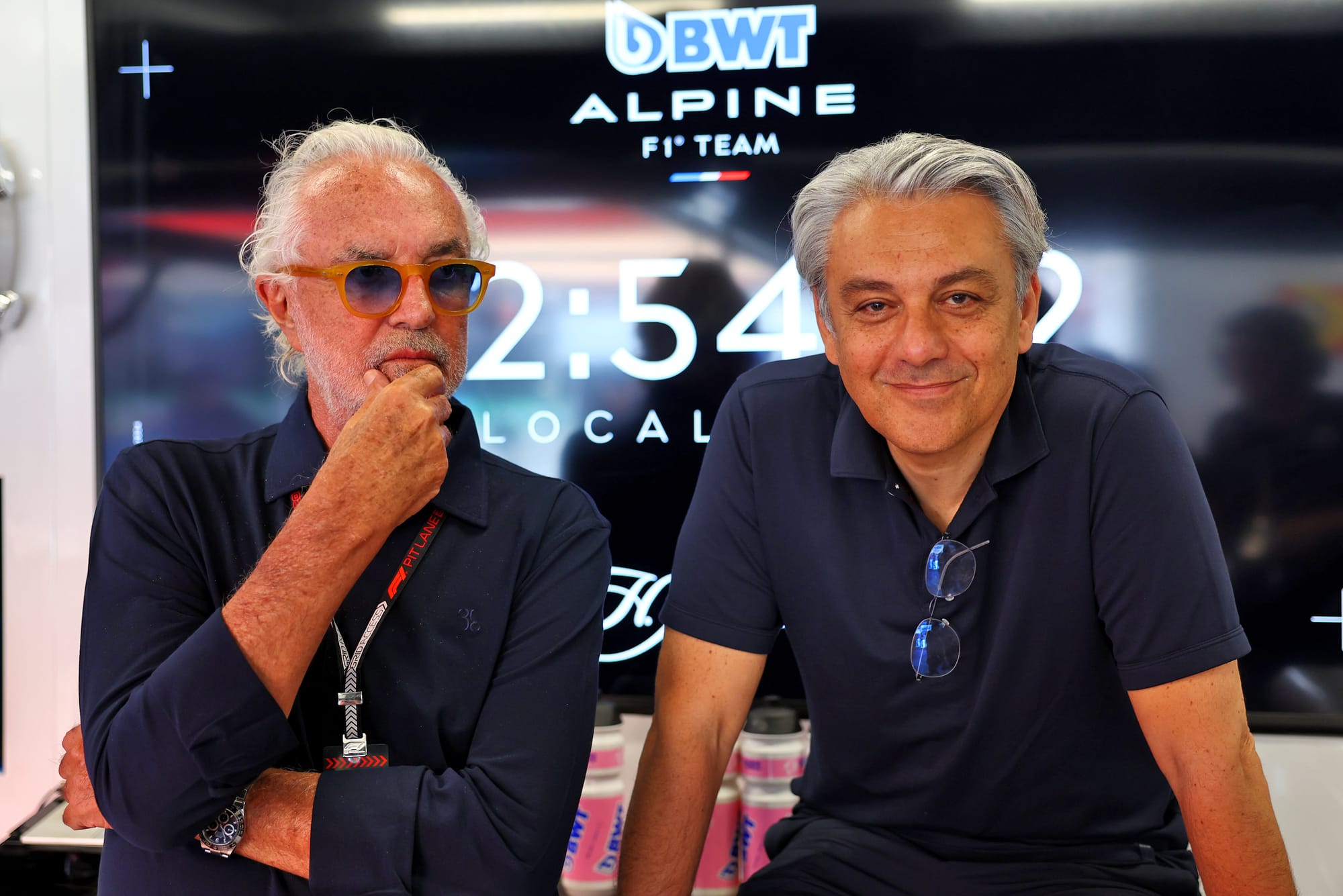
De Meo said it is “heartbreaking” to have had to shut down the engine programme. But there’s at least a degree of finger-pointing here in the CEO's words, an air of ‘I had this great idea and it’s not worked because of other people’.
And that’s consistent with the turnover in team leadership too, with the Oliver Oakes/Flavio Briatore combination now steering the ship - although it was at least refreshing to see De Meo admit “I made mistakes” with the previous team bosses he picked.
What happens, though, if Alpine transitions to customer status and still struggles? And how long does it have to succeed?
When De Meo talks of “shortcuts”, that should set off alarm bells. The intent may just be to make progress as quickly as possible. But eyeing ‘shortcuts’ conveys a sense of impatience and furthers the feeling that Renault is still trying to do F1 without doing it properly.
Demanding success yesterday is the kind of mentality that has doomed several projects over the years, something Renault should know better than most considering how much it has mishandled F1 since returning with a team in 2016.
The engine decision is an acceptance that being a Mercedes customer gives Renault the most cost-efficient F1 team and most likely the best chance at success, too. This in turn is an admission Renault thinks it’s too hard and too expensive to win as a works team and is either not capable of making it work or not willing to put in what’s needed to make it work.
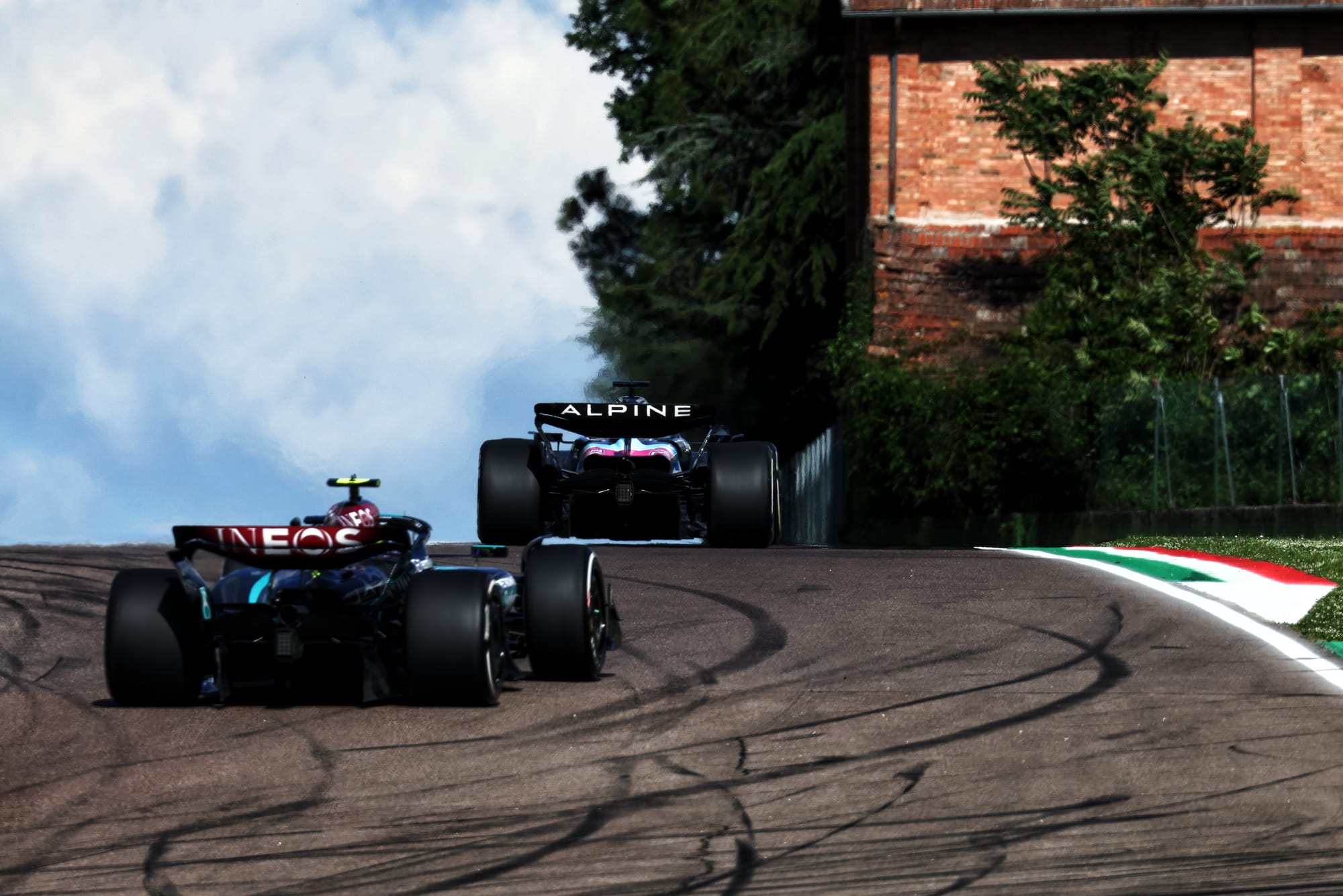
While Viry-Chatillon has 340 employees, De Meo says Alpine’s new engine supplier Mercedes has 900. Rather than expand, Renault is taking the easier route because it does not think the potential advantage of having it all itself is worth it. It is at least doing this alongside re-evaluating the team’s base at Enstone, and where that needs new investment, which (hopefully) means Renault’s at least not just changing engines and assuming it will instantly be a top team again.
Overall, De Meo’s new strategy is unambitious but pragmatic, and driven by a focus on the bottom line. He’s right that there are no longer the exact same benefits of a car manufacturer winning in motorsport and selling its road cars off the back of that success. However, a modern version of that model is possible. For the best F1 teams, success on-track breeds success off it. You win, you profit (especially in the cost cap era), you re-invest. It can be a virtuous circle.
Alpine’s stopping its biggest spending, and banking on a more conservative approach off-track delivering results on it. It isn’t very ‘French Ferrari’ but that probably wasn’t the right thing to aim for in the first place - driving a project with “patriotic feeling”, to use De Meo’s words.
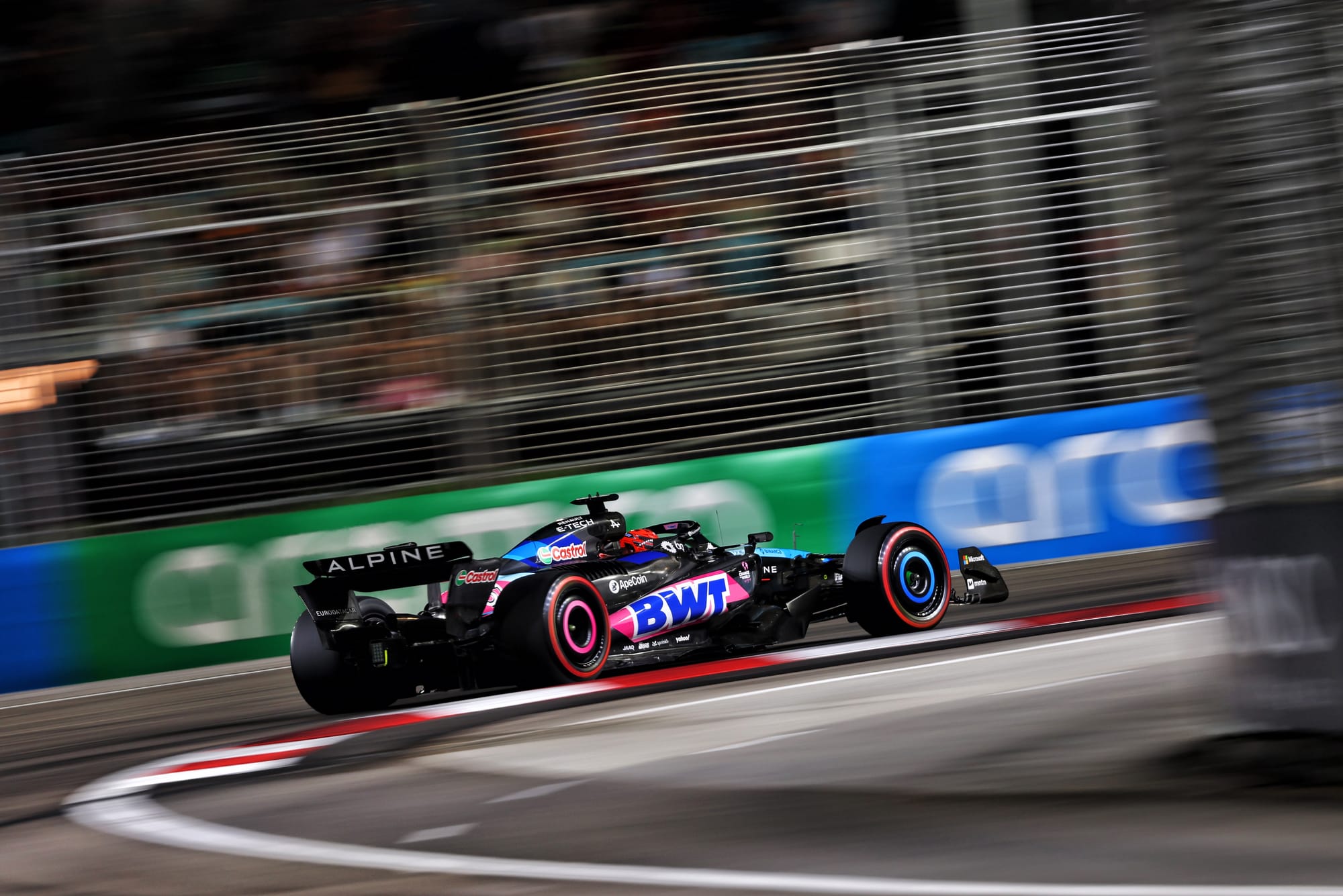
Aside from the likely short-term performance gain - where it could be a very good thing for the Alpine team to be divorced from an expensive, underachieving engine programme that Renault has been looking at disapprovingly for a while - it also might create some separation from corporate Renault in the process.
That is the best chance Briatore and Oakes have of harnessing the strong aspects of Renault’s support, and shutting out the parts that can be meddling, distracting or worse.
